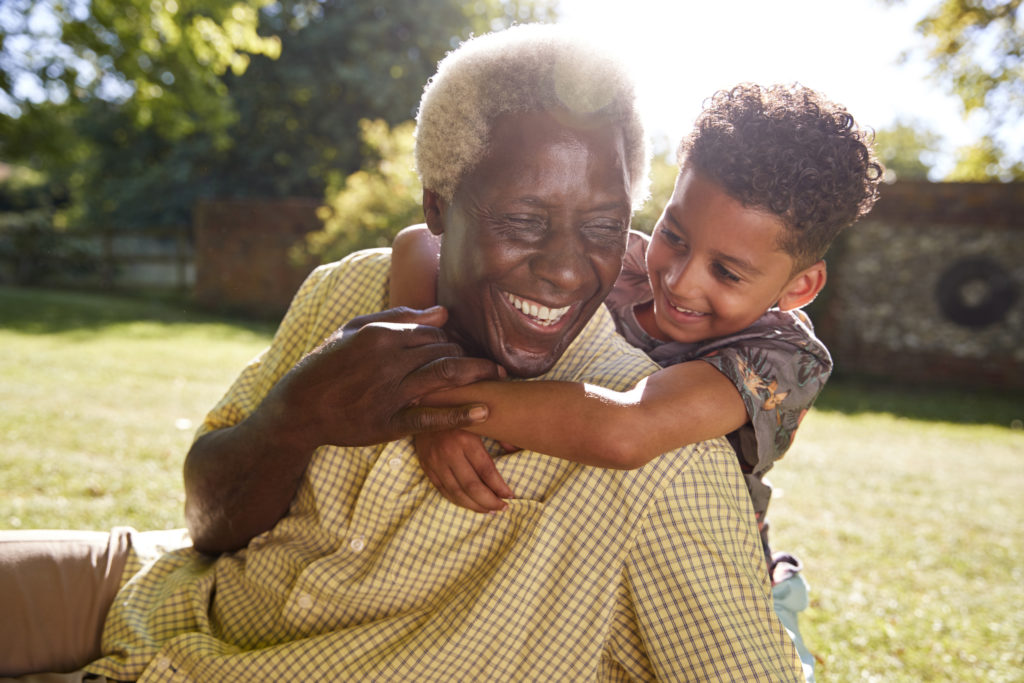Being outside, breathing fresh air, walking among plants and trees, gardening, inhaling the scent of flowers and herbs, taking a stroll along a beach, hiking up a hill, sitting on a park bench soaking up the sunshine – all of these things makes us feel great!
Recent research has now identified why interacting with the natural world makes us feel great, with special health benefits for us as we age. And it’s not just about exercise, although that too is beneficial for seniors.
Here are 5 top reasons, backed by research, why seniors should commune with nature.
1. Exposure to sunlight boosts the all-important Vitamin D.

While there are many theories as to why being in nature makes us healthier, one leading hypothesis focuses on the positive effect that Vitamin D has on our health. More and more research points to Vitamin D’s impact on preventing cancer, protecting against heart disease, boosting the immune system, and reducing obesity, inflammation and hormonal problems. Sunlight is a natural source of Vitamin D intake offering the most efficient way for the body to absorb Vitamin D. Therefore, doctors are now recommending that older individuals spend at least 10-20 minutes outside in the sunshine every day.
2. Taking a break in nature can improve memory and cognitive function.
A research study done at the University of Michigan found that short-term memory improved by 20% just by walking in nature. Even more surprising, simply looking at an image of a natural scene had a restorative effect on cognitive function. Study participants’ performance on memory and attention tests improved after they took a walk through an arboretum, while walking down a busy city street had no cognitive boost. This is why many assisted living communities offer outdoor programs for residents, allowing them to regularly connect with nature.
3. Spending time among plants and trees boosts immunity.

Several studies, including one in Japan published in 2010, showed that participants who spent time in a park or forest for just one day had increased immune function. Scientists cited stress reduction as one factor. Study subjects did have lower concentrations of cortisol, a stress hormone, after their time among the trees, as well as a lower pulse rate and lower blood pressure. But they also had an increased count of white blood cells, which are known to boost the immune system. Scientists attribute these positive benefits to phytoncides, airborne chemicals produced by plants, which seem to benefit humans by helping us fight off infections and diseases.
4. Getting outside improves sleep and energy levels.
Studies show that natural sunlight helps set the body’s internal clock that tells us when to eat and sleep, by regulating hormones and body temperature that occur at specific times of the day. Exposure to sunlight is thought to increase the brain’s release of a hormone called serotonin. At night, darker lighting triggers the brain to make another hormone called melatonin, which helps you sleep. Without enough exposure to natural light during the day, this natural balance in your hormonal levels can be off, negatively impacting sleep patterns.
5. Taking a walk in nature lowers depression, a known problem among the elderly.
A large scale study conducted in England to assess the benefits of a national program promoting group walks in nature, found that they were indeed associated with significantly lower depression and perceived stress. Being in nature enhanced participants’ mental well-being, both before and after controlling for covariates. Another study published in 2009 in Holland found that people who lived within 1 kilometer of a park or a wooded area experienced less anxiety and depression than those who lived farther away from green space.
Despite knowing instinctively that spending time outdoors feels great and can be restorative and invigorating, seniors who live alone often don’t get out. Transportation may be an issue to get to a nice spot to enjoy nature, or it may not be motivating or pleasant thinking about taking a walk alone. Many elderly people use a walker because they aren’t quite steady on their feet; they get nervous about being out alone in case they fall, and also getting the walker in and out of a house or apartment with stairs can be difficult.
For these seniors a more supportive living arrangement, such as Assisted Living, addresses all of these issues by providing easily accessible outdoor spaces that accommodate walkers and wheelchairs, such as patios, porches, gazebos and gardens, as well as supervised age-appropriate exercise programs including walking groups. Senior living communities also bring people outdoors on a regular basis in pleasant weather for planned events, barbecues and gardening. The company I work for, Senior Living Residences, places great emphasis on providing opportunities for their residents to embrace the outdoors. So, if your loved one is more house-bound than you feel is healthy or stimulating, you may consider looking for an alternate living arrangement.


 Lindsay Willis
Lindsay Willis